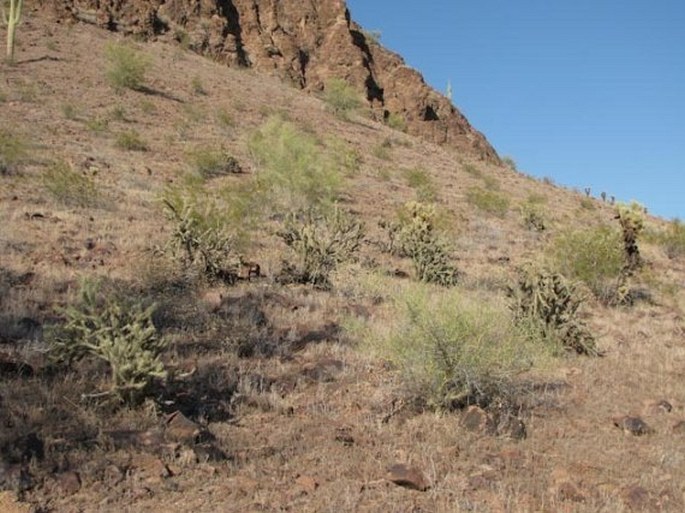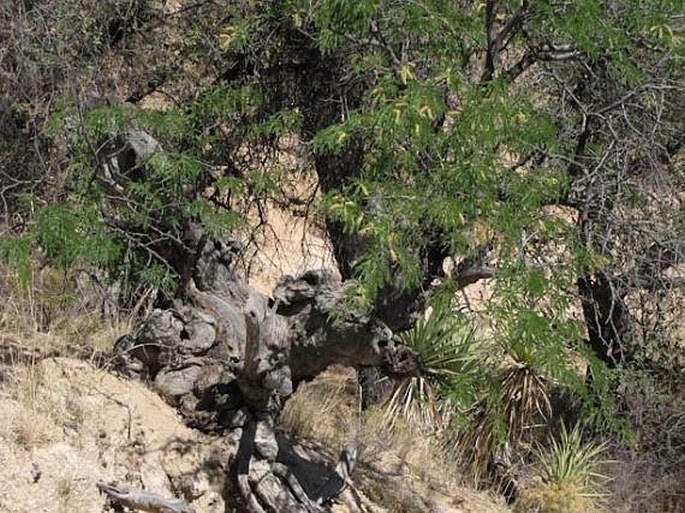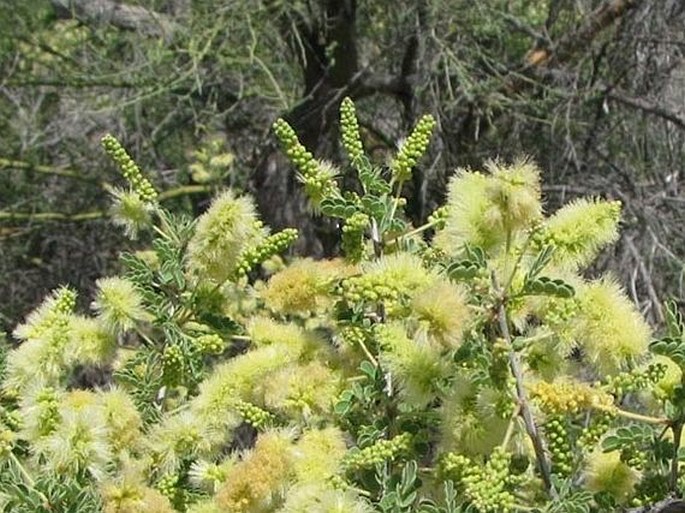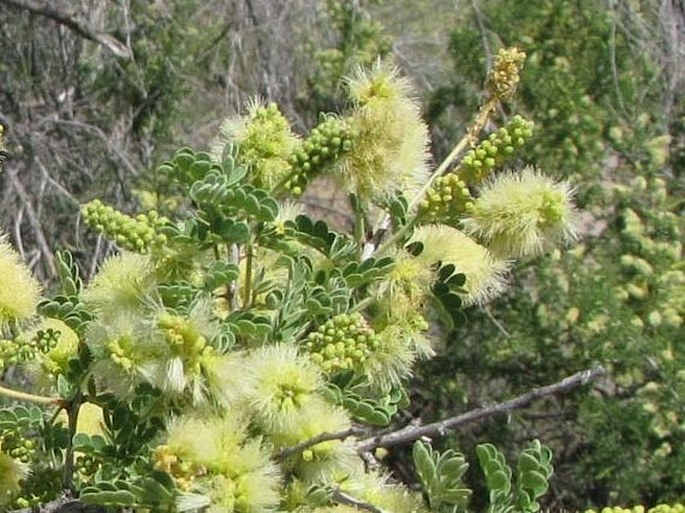Syn.: Neltuma velutina (Wooton) Britton et Rose, Prosopis chilensis var. velutina (Wooton) Standl., Prosopis juliflora var. velutina (Wooton) Sarg.
Family: Fabaceae Lindl.

Distribution: Sonoran desert endemic with main range in Arizona and state of Sonora in Mexico. Marginally spread to Mojave desert in California and Chihuahuan desert in New Mexico and state of Chihuahua in Mexico. Widely naturalised in eastern and central Australia, and in southern Africa.
Ecology: Grows in desert scrubland, and in vicinity of seasonal water it can grow in profusion and form riparian woodlands called bosques. Found up to elevation 1500 m. Blooms at early summer.

Description: Deciduous thorny shrub or small tree up to 15 m tall with the trunk diameter up to 60 cm or it may develop into an erect multistemmed shrub with deep roots to exploit any water supply available. It has a strong tendency for apical dominance and well developed crown. Branches have sharp, woody spines. Bark is dark ashy brown and very rough and flaking. All wounds ooze sticky, black sap. Leaves are bipinnately compound in pairs (two sets of compound leaves on a single stem); leaflets 8–12 mm long, 14–30 pairs of leaflets per leaf, dark green to dusty green, slightly fuzzy, short gray hairs. Flowers are densely clustered on 10 cm long, spike-like racemes, light greenish yellow to pale golden yellow, tiny, with 5 petals. Fruits are legumes, green, drying to tan, 15 cm long, eventually curled; eaten by animals.
Threat and protection: In Arizona it is a protected native plant; federally it is listed as noxious weed as they can become weedy under favourable conditions.
Notes: Mesquite wood is used for flavouring smoke when grilling meat.




These images were taken in USA, Arizona, Gila Bend Mountains (May 2009).


